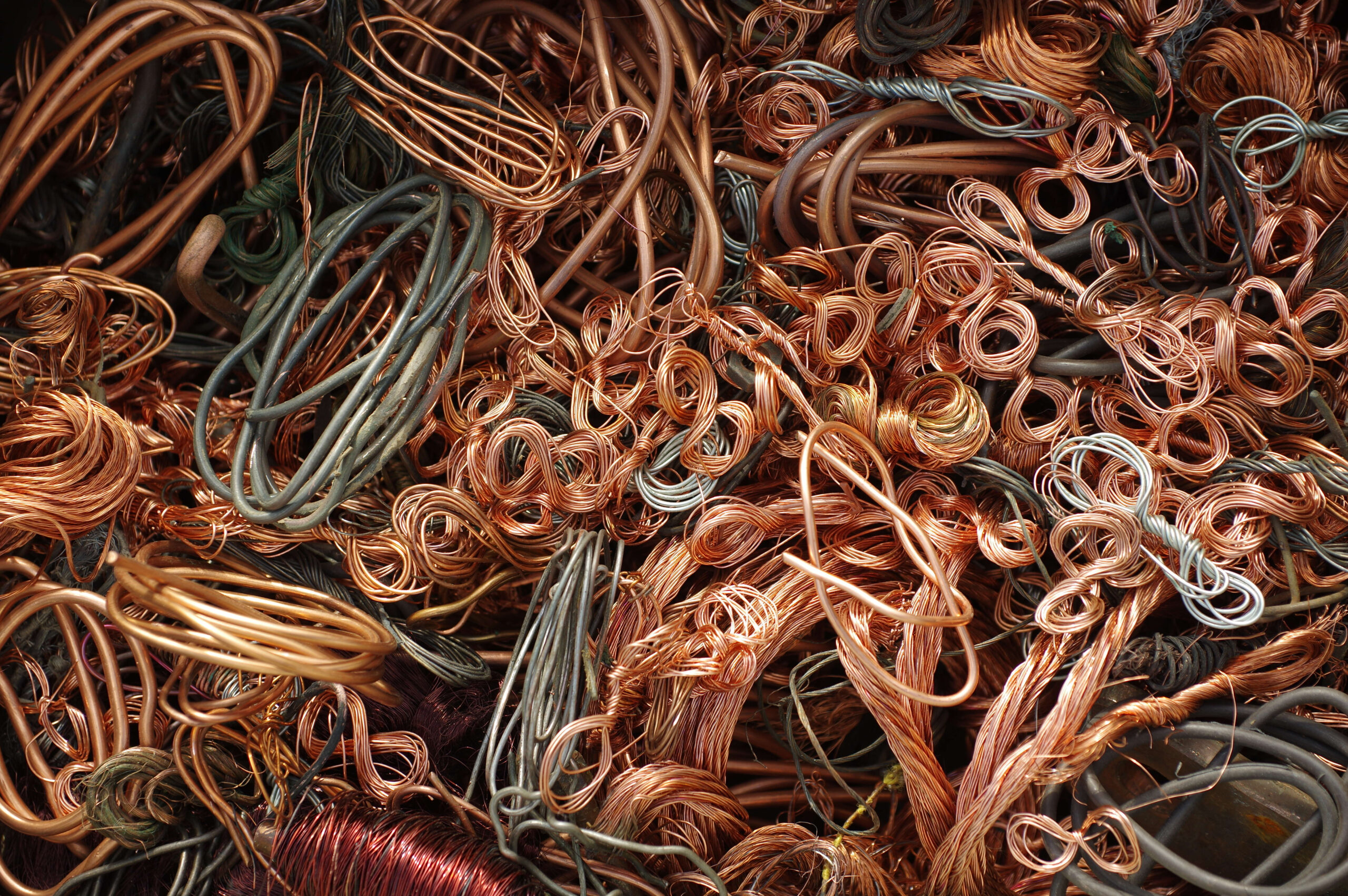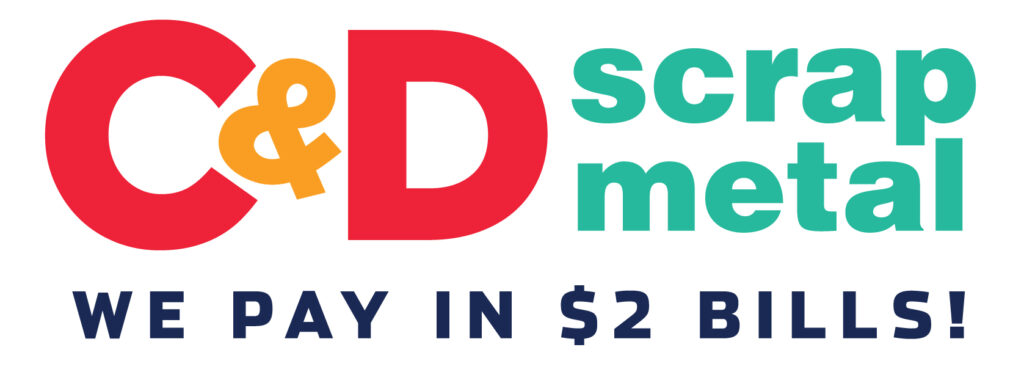Know Your Non-Ferrous Metals

Non ferrous metals, unlike their ferrous counterparts, do not contain iron as a primary component. These metals play an important role in various industries because they resist rust, are lightweight, and can conduct electricity like champs. Non-ferrous metals, like copper and aluminum, are essential for everyday items like your household electronics to more advanced applications like building airplanes.
C&D Scrap Metal is your partner in recycling non-ferrous metals, offering environmentally responsible solutions for disposing of and recycling these valuable materials. Whether it's aluminum, copper, brass, or other non-ferrous metals, we provide efficient recycling services to help protect the environment and save resources.
Types of Non-Ferrous Metals
Aluminum
Aluminum is a lightweight non-ferrous metal known for its excellent corrosion resistance and high strength-to-weight ratio. It is important in aircraft manufacturing, automotive components, beverage cans, and construction.
Copper
Copper is a non-ferrous metal valued for its high electrical conductivity, making it a go-to in electrical wiring, electronics, and telecommunications. It's also used in plumbing, roofing, and industrial machinery due to its malleability and durability.
Brass
Brass, an alloy of copper and zinc, offers a unique combination of strength, corrosion resistance, and aesthetic appeal. It's commonly used in musical instruments, decorative items, plumbing fixtures, and architectural elements.
Lead
Lead is dense and malleable, making this non-ferrous metal useful in applications requiring weight, such as batteries, radiation shielding, and plumbing fittings. However, its toxicity has led to restrictions on its use in certain products. C&D does accept Lead Acid Batteries.
Nickel
Nickel is a non-ferrous metal that boasts excellent corrosion resistance, heat resistance, and magnetic properties. It is valued in stainless steel production, airplane parts, chemical processing equipment, and rechargeable batteries.
Common Applications of Non-Ferrous Metals

Residential Uses
Electrical Wiring
Copper wiring forms the backbone of electrical systems in homes, ensuring efficient transmission of electricity with minimal loss.
Plumbing
Brass and copper pipes are widely used in residential plumbing systems due to their corrosion resistance and durability.
Kitchenware
Aluminum pots, pans, and utensils are lightweight and heat-conductive, making them popular choices for cooking enthusiasts.

Commercial and Industrial Uses
Electronics
Copper, aluminum, and other non-ferrous metals are essential components in electronic devices, including smartphones, computers, and televisions.
Transportation
Aluminum alloys are used extensively in automotive manufacturing to reduce vehicle weight and improve fuel efficiency.
Construction
Aluminum extrusions are used in building facades, window frames, and structural components due to their lightweight nature and corrosion resistance.
Aviation
Non-ferrous metals like titanium and aluminum alloys are necessary in aviation applications, where strength, durability, and weight are a must-have.
Make C&D Your Partner in Recycling
Recycling non-ferrous metals isn't just good for the planet, it's also a smart move for your wallet. Most non-ferrous metals have a higher value than their ferrous (primarily iron) counterparts.
At C&D Scrap Metal, we make it easy for you to recycle your non-ferrous metals. We offer covered drop-offs at all locations, help with unloading materials, and maintain clean, nail-free lots to protect your tires from getting a flat.
Get in touch with us today to learn more about how we can help you handle all your scrap metal recycling needs.
